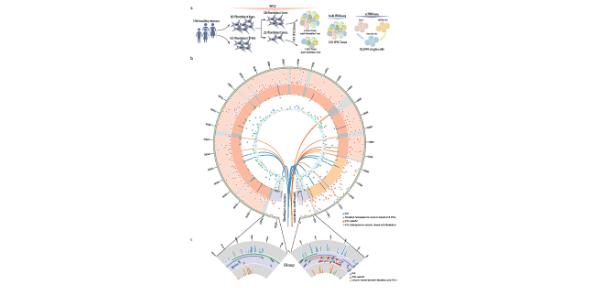
Submitted by Penny Peck on Fri, 03/09/2021 - 17:56
Nature Communications has published the results of a research study led by Professor Patrick Chinnery, which show that the dynamic mtDNA landscape contributes to the heterogeneity of human iPSCs.
Individual induced pluripotent stem cells (iPSCs) show considerable phenotypic heterogeneity, but the reasons for this are not fully understood.
In this study, the mitochondrial genome (mtDNA) was comprehensively analysed in 146 iPSC and fibroblast lines from 151 donors. The results showed that most age-related fibroblast mtDNA mutations are lost during reprogramming. However, iPSC-specific mutations are seen in 76.6% (108/141) of iPSC lines at a mutation rate of 8.62 X 10−5/base pair.
The mutations observed in iPSC lines affect a higher proportion of mtDNA molecules, favouring non-synonymous protein-coding and tRNA variants, including known disease-causing mutations.
Analysing 11,538 single cells showed stable heteroplasmy in subclones derived from the original donor during differentiation, with mtDNA variants influencing the expression of key genes involved in mitochondrial metabolism and epidermal cell differentiation.
Thus, the dynamic mtDNA landscape contributes to the heterogeneity of human iPSCs and should be considered when using reprogrammed cells experimentally or as a therapy.
Full publicaton reference: Wei, W., Gaffney, D.J. & Chinnery, P.F. Cell reprogramming shapes the mitochondrial DNA landscape. Nat Commun 12, 5241 (2021). https://doi.org/10.1038/s41467-021-25482-x

